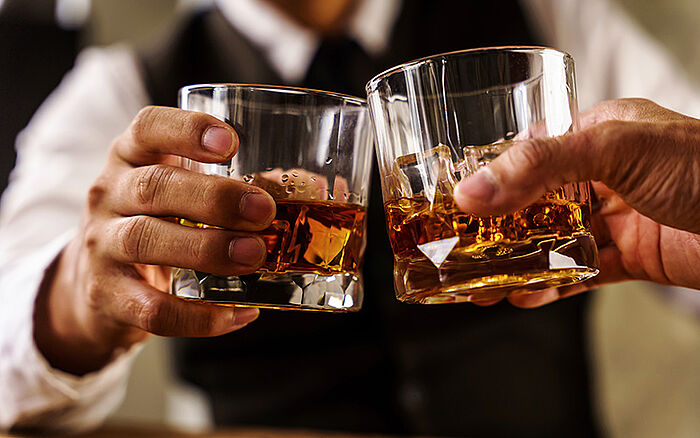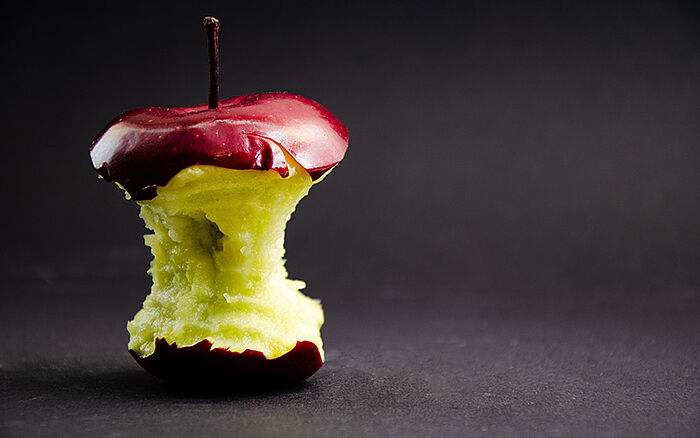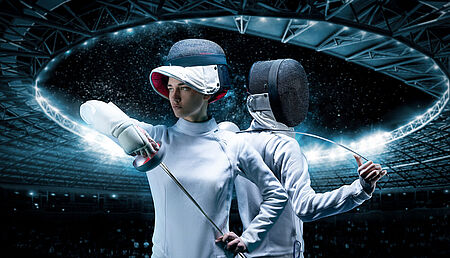
A matter of time: resolving IP disputes
Orson Welles' flair for quips is on full display in the 1949 classic, "The Third Man," when his character remarks: "In Switzerland, they had brotherly love. They had five hundred years of democracy and peace, and what did that produce?... The cuckoo clock."
Yet as the zither soundtrack fades out, the World Intellectual Property Organization (WIPO) is left in disagreement with this jaunty bot mot. And as much as we enjoy urbane humor here at Dennemeyer, we too must contend that the Alpine nation has a truly unimpeachable standing in the fields of innovation and Intellectual Property (IP). However, as we shall see in this month's edition of the IP news summary, not all companies are as welcoming of Switzerland's application of trademark law.
But first, we will examine some updates to stories discussed in past news articles.
Important decisions from IP courts
We reported last month on the long-awaited opening of the Unified Patent Court for European Union member states. This new judicial body aims to streamline patent litigation and reduce the possibility of conflicting judgments from parallel cases in multiple jurisdictions. Though hopes remain high for its success on these fronts, court processes will still be slow-moving affairs.
On that note, here are rulings from litigation stories recently covered on our blog.
Intel v. VLSI
As part of the protracted Intel vs. VLSI patent saga, U.S. chip manufacturer Intel clawed back a substantial victory against the SoftBank Group-backed holding company.
In March 2021, a Texas jury awarded VLSI $2.175 billion USD in damages for the infringement of two patents relating to the memory and clock speed of electronic devices. Later, interested party OpenSky Industries filed a petition to review several claims of the involved U.S. Patent No. 7,725,759. As a result of this action, on May 12, 2023, all challenged claims were deemed invalid by the Patent Trial and Appeal Board of the United States Patent And Trademark Office (USPTO). This decision released Intel from having to pay $675 million USD of the 2021 damages.

Intel and VLSI have been fighting tooth and nail in the U.S. courts, with the current spate of suits and counter-suits beginning in November 2019. This was when Intel and Apple jointly accused the investment company that owns VLSI of violating anti-trust laws by exploiting its patent holdings to sue chip manufacturers.
Just over a month later, on June 13, the remaining $1.5 billion USD was struck off. The same panel of judges handed down a decision on a separate petition, declaring the contentious claims of the remaining grant, U.S. Patent No. 7,523,373, also unpatentable. Both petitions were successful on the grounds that the claims were patent-ineligible due to obviousness.
Jack Daniels vs. VIP Products
At the beginning of this year, we brought you the story that a dispute between Jack Daniel's whiskey and a dog toy was to appear before the U.S. Supreme Court. The highest court was asked to decide whether the squeaky Bad Spaniels toy infringed the Tennessee whiskey's trade dress or the former's imitation amounted to a Constitutionally protected "expressive work." On June 8, the Supreme Court rendered its unanimous opinion that any First Amendment protections were moot in trademark cases where the commercial origin was at risk of confusion.
"[T]he trademark law generally prevails over the First Amendment" when "another's trademark (or a confusingly similar mark) is used without permission" as a means of "source identification." Yankee Publishing Inc. v. News Am. Publishing Inc., 809 F. Supp. 267, 276 (SDNY 1992) (Leval, J.) (emphasis deleted). So for those uses, the First Amendment does not demand a threshold inquiry like the Rogers test. When a mark is used as a mark (except, potentially, in rare situations), the likelihood-of-confusion inquiry does enough work to account for the interest in free expression.
Overturning the Ninth Circuit's ruling that Bad Spaniels was both noncommercial and that its parodic nature exempted it from trademark infringement, the case has been remanded for final resolution.

Jack Daniel's will be toasting its success before the Supreme Court earlier this month. The ruling adds a dash of extra strength to the protection of trademarks and trade dress in the United States by clarifying they cannot be watered down by "parodies."
Ed Sheeran vs. copyright owners
And lastly, Ed Sheeran won his copyright trial against the rights holders of Marvin Gaye's 1973 hit "Let's Get It On." On May 4, a New York jury delivered its verdict that "Thinking Out Loud" (2014) did not infringe upon the interests of the earlier song. This is the second such copyright case to rule in Sheeran's favor, following a separate bench trial at the High Court in the United Kingdom in April 2022.
An Apple a day keeps the competition away
Switzerland crops up surprisingly often in IP news, and not least because it has been recognized as the most innovative country in the world 12 years in a row. The small landlocked nation, famed for its neutrality, fiercely asserts its independence in interpreting and applying trademark law, and it is this tendency to buck the trend that has brought it into conflict with the world's largest company.
Since 2009, Apple Inc. has held an international trademark registration for a black-and-white illustration of an apple covering goods and services under class 9 of the Nice Classification system. Under the Madrid System administered by the WIPO, an international trademark registration grants protection in all member states (up to 130 countries) via a single set of fees. However, individual states can provisionally refuse the protection of the mark in their territory within 12-18 months, notifying the WIPO of their decision to conduct a review. As such, in 2018, the Swiss Federal Institute of Intellectual Property (IPI) confirmed its refusal of Apple Inc.'s apple in class 9 on the grounds that the realistic depiction belonged to the public domain.
Apple Inc. then submitted an appeal in German to the Federal Administrative Court of Switzerland on April 20 of this year, arguing that the "distinctive character of the mark is only lost if there is a sufficiently specific relationship between the sign and the goods and services. This relationship is lacking in the present case."

Apple Inc.'s logo is highly recognizable, but the trademark at issue is for an intact apple. Small businesses are concerned that such a registration may facilitate more aggressive claims against vaguely similar commercial marks, allowing the technology company to take more bites out of non-competitors.
In other words, the apple figuratively indicates commercial origin rather than the exact nature of the goods and services concerned. Apple Inc. is not selling actual apples.
But Fruit-Union Suisse is – or rather, the roughly 8,000 Swiss apple growers they represent are. Quoted in Wired, the director of Fruit-Union Suisse, Jimmy Mariéthoz, expressed his group's concern that "any visual representation of an apple – so anything that's audiovisual or linked to new technologies or to media – could be potentially impacted. That would be a very, very big restriction for us."
With a logo of an apple overlain by the Swiss flag and the technology giant's notorious reputation for muscling smaller trademark owners out of registries, Mariéthoz bemoaned, "Theoretically, we could be entering slippery territory every time we advertise with an apple." As expressed in a report by the Tech Transparency Project, Apple Inc. has drawn ire for an approach to trademark oppositions that is especially hectoring even among the pugnacious companies of Silicon Valley.
The fact the contentious mark is a realistic drawing of an apple in black and white is seen by Cyrill Rigamonti, lecturer of IP law at the University of Bern, as a savvy, if cynical, sleight of hand. In the same Wired report, he suggests that the likelihood of confusion could be inferred by Apple Inc. as expansively as possible. Stripped of stylization and color, the trademark could conceivably restrict the freedom of even the most tangential enterprise.
The decision of the Federal Administrative Court may not arrive for some months, but whatever the outcome, prior use must surely place the 111-year-old growers' union in strong stead. That said, Fruit-Union Suisse could further secure its position by registering its trademarks at the IPI as this action confers much more robust legal protection and the assumption of validity. A registered trademark is the most defensible one, and this status is often the deciding factor when disputes arise. In the end, that Apple Inc.'s international trademark has long held protected status in a cornucopia of jurisdictions from Japan to the European Union to the African Intellectual Property Organization does not rule out its prohibitory use in the future. Thus enterprises in Switzerland would be wise to seek the maximum safeguards for their fruit-related IP.
Whatever court decisions are still to come, it is a safe bet that the specialists at Dennemeyer will be keeping an eye and an ear out for the biggest IP developments worldwide and will make sure you stay informed.
Filed in

Explore the latest IP dramas, from an Olympic trademark dispute to challenges in drug patenting and a lawsuit for allowing music piracy.



